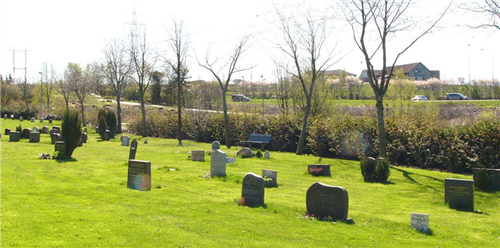The unbearable price of resting in peace
| ?
|
The spreading Chinese real estate bubble has extended to the cemetery. Skyrocketing tomb prices have forced many to try to book one while being still alive, an action that is not allowed.
The cost of funerals and burials have risen to such an exorbitant level that many complain that they cannot afford to die. In addition to rising housing prices and poor public healthcare, rising interment service fees and burial place prices have become another source of public anger.
Traditionally, Chinese people pay extra attention to their place of burial. It is widely believed that the feng shui of one's tomb is crucial to the afterlife. The extravagance of the funeral is also seen as a measure of respect by family members to the deceased, which has given rise to a large number of luxury cemeteries that take up more land.
Despite the original public interest goal of the funeral and burial sector, its de facto monopoly allows its players to over-charge for various services. Psychological needs, plus market demand, have led to undertaking becoming among the most lucrative sectors in China.
A tomb place going for six figure prices is not unusual. It is reported that many tomb locations are more expensive than apartments per unit.
The market mechanism has penetrated into China's daily life, so profit has been regarded as the priority for undertakers, as in other industries. But, when resting in peace becomes a luxury out of the reach of many, it creates undue anxiety among the living.
The funeral industry is seemingly running wild. While a lack of supervision is common in the Chinese market, making excessive money from the dead is intolerable. The reform of the funeral industry must serve public interests. The government should respond to the increasing public demand for more affordable burial places.
As China's population ages, the burden of funeral costs would intensify further as land available for burial is ever reduced. Chinese people could also gradually accept other burial form, such as sea burials as an alternative.
 0
0 







